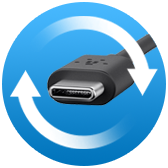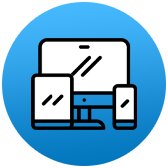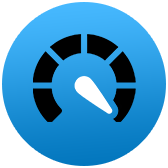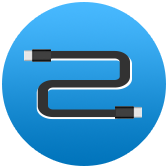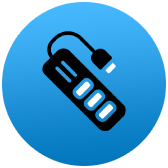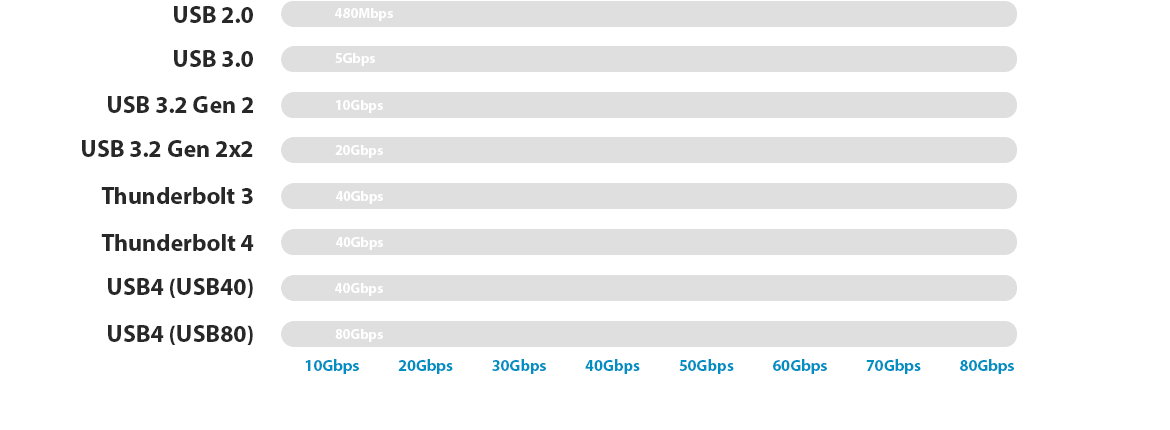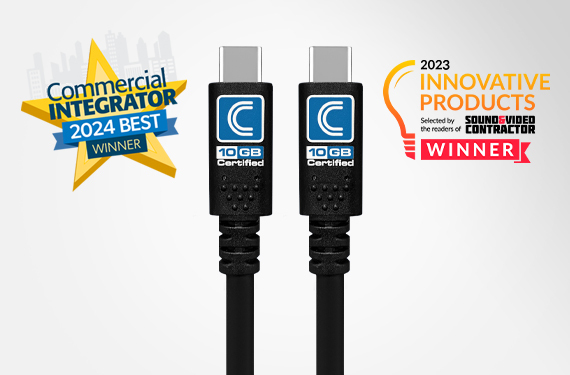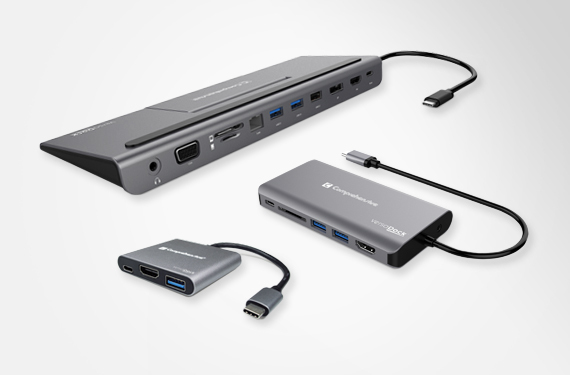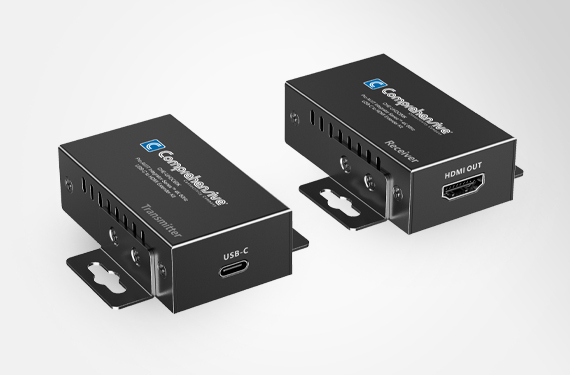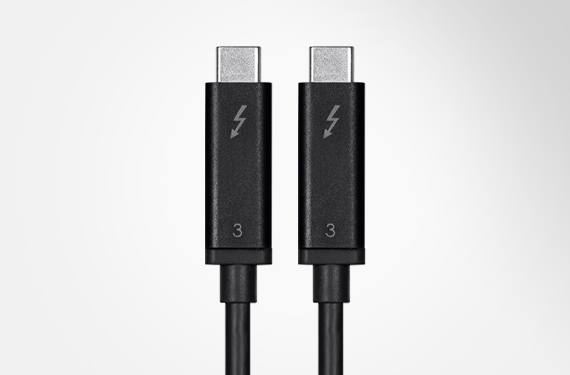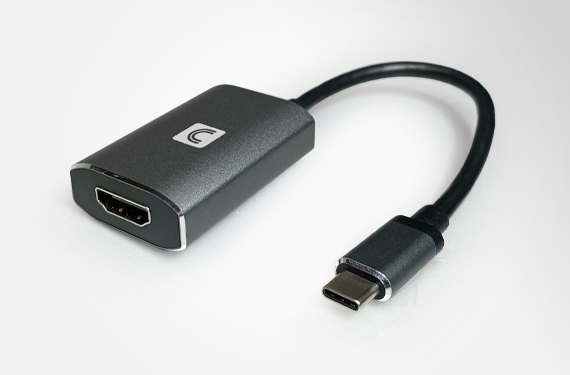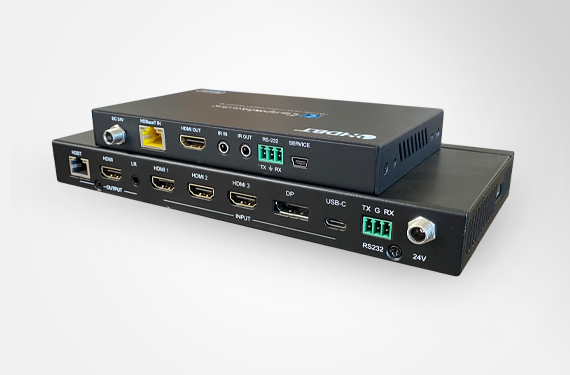Are all USB-C Cables created equal?
Not quite. While they share the USB Type-C Connector, USB Type-C Cables can vary in terms of their capabilities and specifications. USB Type-C is a versatile and powerful standard that supports different data transfer speeds, power delivery options whether the cable is rated for 18W, 60W or 100W or higher and alternate modes like 4K60Hz or 8K60Hz video output. USB Type-C Cables can differ in the USB version they support (such as USB 2.0, USB 3.0, USB 3.1, 3.2 or USB4), the data transfer rates they can achieve, their ability to deliver power, and whether they have additional features like DisplayPort Alt mode or Thunderbolt 3 & Thunderbolt 4 support.
It's important to note that not all USB Type-C Cables offer the same level of power delivery or support high-speed data transfers. Some cables may only provide slower charging speeds or lower data transfer rates. Furthermore, variations in build quality, durability, testing, and compatibility with specific devices or manufacturers can exist. For Over 50 Years, Comprehensive has manufactured the highest quality cables for AV/IT professionals. USB-C is a Comprehensive specialty with the largest selection of USB-C cables and devices including USB-C Adapters, USB-C Docks, USB-C Extenders, USB-C Hubs, USB-C Power & Charging, USB-C Switchers and USB-C Wall Plates available anywhere.
To ensure compatibility and optimal performance, it's advisable to select USB Type-C Cables that meet your specific requirements and adhere to the necessary standards. Look for cables that are clearly labeled with the desired USB version, power delivery capabilities, and any additional features you may need.
| New Term | USB
Version Prev Term |
Cable Configuration | Data Transfer Rate | Maximum Power | Applications |
|---|---|---|---|---|---|
| -- | USB 2.0 | USB-C to USB-C | 480Mbps | 60W / 100W | • Charging: Phones, laptops, game consoles, cameras, iPads,
tablets. • USB Data Transfer: Documents files, photos, music with flash drives/external drive to phone or laptop. |
| USB 5Gbps |
USB 3.0 | USB-C to USB-C | 5Gbps | 60W / 100W | • Charging: Phones, laptops, game consoles, cameras, iPads, tablets. • USB Data Transfer: Documents files, photos, music with flash drives/external drive to phone or laptop. |
| USB 3.1 Gen 1 |
USB-C to USB-C | 5Gbps | 60W / 100W | • Charging: Phones, laptops, game consoles, cameras, iPads, tablets. • USB Data Transfer: Documents files, photos, music with flash drives/external drive to phone or laptop. • DP Alt Mode: Display support, connecting a laptop/phone/iPad to a single 4K 60Hz display. |
|
| USB 3.2 Gen 1 |
USB-C to USB-C | 5Gbps | 60W / 100W | • Charging: Phones, laptops, game consoles, cameras, iPads, tablets. • USB Data Transfer: Documents files, photos, music with flash drives/external drive to phone or laptop. • DP Alt Mode: Display support, connecting a laptop/phone/iPad to a single 4K 60Hz display. |
|
| USB 10Gbps | USB 3.1 Gen 2 |
USB-C to USB-C | 10Gbps | 60W / 100W | • Charging: Phones, laptops, game consoles, cameras, iPads, tablets. • USB Data Transfer: Documents files, photos, music with flash drives/external drive to phone or laptop. • DP Alt Mode: Display support, connecting a laptop/phone/iPad to a single 4K 60Hz display. • Full USB-C Docking: 4K 60Hz video, 1G ethernet, USB data up 5Gbps, charging up to 100W. |
| USB 3.2 Gen 2 |
USB-C to USB-C | 10Gbps | 60W / 100W | • Charging: Phones, laptops, game consoles, cameras, iPads, tablets. • USB Data Transfer: Documents files, photos, music with flash drives/external drive to phone or laptop. • DP Alt Mode: Display support, connecting a laptop/phone/iPad to a 4K 60Hz display or dual 4K 60Hz displays. • Full USB-C Docking: 4K 60Hz video, 1G ethernet, USB data up 5Gbps, charging up to 100W. |
|
| USB 20Gbps | USB 3.2 Gen 2x2 |
USB-C to USB-C | 20Gbps | 100W | • Charging: Phones, laptops, game consoles, cameras, iPads, tablets. • USB Data Transfer: Documents files, photos, music with flash drives/external drive to phone or laptop. • DP Alt Mode: Display support, connecting a laptop/phone/iPad to a 4K 60Hz display or dual 4K 60Hz displays. • Full USB-C Docking: 4K 60Hz video, 1G ethernet, USB data up 10Gbps, charging up to 100W. |
| USB4 Gen 2x2 |
USB-C to USB-C | 20Gbps | 100W / 240W | • Charging: Phones, laptops, game consoles, cameras, iPads, tablets. • USB Data Transfer: Documents files, photos, music with flash drives/external drive to phone or laptop. • DP Alt Mode: Display support, connecting a laptop/phone/iPad to a 4K 60Hz display or dual 4K 60Hz displays. • Full USB-C Docking: 8K 60Hz video, 1G ethernet, USB data up 20Gbps, charging up to 240W. |
|
| USB 40Gbps | USB4 Gen 3x2 |
USB-C to USB-C | 40Gbps | 100W / 240W | • Charging: Phones, laptops, game consoles, cameras, iPads, tablets. • USB Data Transfer: Documents files, photos, music with flash drives/external drive to phone or laptop. • DP Alt Mode: Display support, connecting a laptop/phone/iPad to a Single 8K display or dual 4K 60Hz displays. • Full USB-C Docking: 8K 60Hz video, 1G ethernet, USB data up 20Gbps, charging up to 240W. |
| USB 80Gbps | USB4 2.0 | USB-C to USB-C | 80Gbps | 240W | • Charging: Phones, laptops, game consoles, cameras, iPads, tablets. • USB Data Transfer: Documents files, photos, music with flash drives/external drive to phone or laptop. • DP Alt Mode: Display support, connecting a laptop/phone/iPad to a Single 8K display or dual 4K 60Hz displays. • Full USB-C Docking: 8K 60Hz video, 1G ethernet, USB data up 20Gbps, charging up to 240W. |
USB-C Products from Comprehensive
Comprehensive Connectivity offers a wide range of USB Type-C products to suit any desired need.
Comprehensive Connectivity offers a wide range of USB Type-C products to suit any desired need.
Types of USB Type-C Cable Configurations
USB Type-C connectors are used with a variety of cables. Here are some common cables that use a USB Type-C connector:


USB Type-C to USB Type-A Cable:
This cable has a USB Type-C connector on one end and a USB Type-A connector on the other end. It is commonly used to connect USB Type-C devices to standard USB ports on computers, chargers, and other peripherals.


USB Type-C to USB Type-C Cable:
This cable features USB Type-C connectors on both ends. It is often used for direct connections between USB Type-C devices, such as connecting a smartphone to a laptop for data transfer or charging.


USB Type-C to Lightning Cable:
This cable is used to connect USB Type-C devices to Apple devices with Lightning ports, like iPhones and iPads.


USB Type-C to HDMI Cable:
This cable combines a USB Type-C connector with an HDMI connector on the other end. It allows you to connect devices with USB Type-C ports, like laptops or smartphones, to external displays or TVs with HDMI inputs.


USB Type-C to DisplayPort Cable:
Similar to the USB Type-C to HDMI cable, this cable includes a USB Type-C connector on one end and a DisplayPort connector on the other. It enables you to connect USB Type-C devices to monitors or projectors with DisplayPort inputs.


USB Type-C to Ethernet Cable:
This cable utilizes a USB Type-C connector on one end and an Ethernet connector (such as RJ-45) on the other end. It enables you to connect devices with USB Type-C ports, like laptops or tablets, to wired Ethernet networks for internet connectivity.


USB Type-C to USB Type-B Cable:
This cable has a USB Type-C connector on one end and a USB Type-B connector on the other end. It is commonly used to connect USB Type-C devices to printers, scanners, or other peripherals that still use the USB Type-B interface.


USB Type-C to Micro-USB Cable:
This cable combines a USB Type-C connector with a Micro-USB connector on the other end. It is useful for connecting devices with USB Type-C ports to older devices or accessories that use the Micro-USB standard.
These are just a few examples of cables that utilize USB Type-C connectors. The versatility of USB Type-C allows it to be used with various cable types, depending on the specific needs and compatibility of the devices being connected.
USB Type-C FAQs
Q: What is USB Type-C?
A: USB Type-C is a type of USB connector that is designed to be versatile and reversible, meaning it can be inserted into a device in any orientation. It is a compact, oval-shaped connector that is becoming increasingly popular on modern devices.
Q: What are the advantages of USB Type-C?
A: USB Type-C offers several advantages over previous USB connector types. These include its reversible design, allowing for easier and more convenient connections. It also supports faster data transfer speeds, higher power delivery for charging devices, and the ability to transmit audio and video signals. USB Type-C is also more compact and durable compared to older USB connectors.
Q: Is USB Type-C compatible with older USB devices?
A: USB Type-C is compatible with older USB devices, but you may need an adapter or a specific cable to connect to devices with different types of USB ports. USB Type-C is designed to be a universal connector, and various adapters and cables are available to facilitate compatibility with older devices.
Q: Can USB Type-C support fast charging?
A: Yes, USB Type-C supports fast charging through the Power Delivery (PD) protocol. USB Type-C PD allows for higher power output, enabling faster charging for compatible devices such as smartphones, tablets, and laptops up to 100W or more. It also allows devices to negotiate power requirements, ensuring optimal charging efficiency.
Q: Can USB Type-C transfer data?
A: Yes, USB Type-C supports high-speed data transfer. The data transfer speeds can vary depending on the underlying USB specification used, such as USB 2.0, USB 3.0, USB 3.1, or USB 3.2. The higher USB specifications offer faster data transfer rates, allowing for quick file transfers and improved performance.
Q: Can USB Type-C be used for video output?
A: Yes, USB Type-C can support video output through alternate modes such as DisplayPort or HDMI. This means you can connect a USB Type-C device to an external display or TV using a USB Type-C to DisplayPort or USB Type-C to HDMI Cable, without the need for additional adapters.
Q: Are all USB Type-C Cables the same?
A: No, not all USB Type-C Cables are the same. While they use the same connector, USB Type-C Cables can differ in terms of their supported USB version, data transfer rates, power delivery capabilities, and additional features. It is important to choose cables that meet your specific requirements and adhere to the necessary standards to ensure compatibility and optimal performance.
Q: Which devices use USB Type-C?
A: USB Type-C is used in various devices, including smartphones, tablets, laptops, desktop computers, monitors, external storage devices, audio devices, gaming consoles, and even automobiles. Its versatility and benefits have led to its adoption on a wide range of modern technology.
Q: Can USB Type-C replace other connectors like HDMI or DisplayPort?
A: Yes, USB Type-C with alternate modes can replace connectors like HDMI and DisplayPort for video and audio transmission. Many modern devices use USB Type-C for both data transfer and video output.
Q: What precautions should I take when using USB Type-C?
A: To ensure compatibility and safety, use high-quality USB Type-C Cables and adapters that comply with relevant standards. Avoid using cheap or uncertified cables, as they may not provide the expected performance and could potentially damage your devices.
Q: What is the difference between USB Type A, Type B & Type- C connectors?
A: USB Type A is the original design for the USB standard and uses a flat rectangular shape. Type B connector is the other end of a standard USB cable that plugs into peripheral device (such as a printer, a phone or an external hard drive) Type-C connector measures 8.4 by 2.6mm and is reversible.
Q: Can I use a USB Type-C Cable for charging my laptop?
A: It depends on your laptop and its power requirements. While some laptops can be charged using USB Type-C, others may require a specific power adapter or charger provided by the manufacturer. It's important to check the laptop's specifications or consult the manufacturer's guidelines.
Q: Is USB Type-C compatible with Thunderbolt?
A: Yes, USB Type-C ports can also support Thunderbolt technology, which offers even faster data transfer speeds (up to 40 Gbps) and additional features such as daisy-chaining multiple devices and connecting external displays.
A: USB Type-C is a type of USB connector that is designed to be versatile and reversible, meaning it can be inserted into a device in any orientation. It is a compact, oval-shaped connector that is becoming increasingly popular on modern devices.
Q: What are the advantages of USB Type-C?
A: USB Type-C offers several advantages over previous USB connector types. These include its reversible design, allowing for easier and more convenient connections. It also supports faster data transfer speeds, higher power delivery for charging devices, and the ability to transmit audio and video signals. USB Type-C is also more compact and durable compared to older USB connectors.
Q: Is USB Type-C compatible with older USB devices?
A: USB Type-C is compatible with older USB devices, but you may need an adapter or a specific cable to connect to devices with different types of USB ports. USB Type-C is designed to be a universal connector, and various adapters and cables are available to facilitate compatibility with older devices.
Q: Can USB Type-C support fast charging?
A: Yes, USB Type-C supports fast charging through the Power Delivery (PD) protocol. USB Type-C PD allows for higher power output, enabling faster charging for compatible devices such as smartphones, tablets, and laptops up to 100W or more. It also allows devices to negotiate power requirements, ensuring optimal charging efficiency.
Q: Can USB Type-C transfer data?
A: Yes, USB Type-C supports high-speed data transfer. The data transfer speeds can vary depending on the underlying USB specification used, such as USB 2.0, USB 3.0, USB 3.1, or USB 3.2. The higher USB specifications offer faster data transfer rates, allowing for quick file transfers and improved performance.
Q: Can USB Type-C be used for video output?
A: Yes, USB Type-C can support video output through alternate modes such as DisplayPort or HDMI. This means you can connect a USB Type-C device to an external display or TV using a USB Type-C to DisplayPort or USB Type-C to HDMI Cable, without the need for additional adapters.
Q: Are all USB Type-C Cables the same?
A: No, not all USB Type-C Cables are the same. While they use the same connector, USB Type-C Cables can differ in terms of their supported USB version, data transfer rates, power delivery capabilities, and additional features. It is important to choose cables that meet your specific requirements and adhere to the necessary standards to ensure compatibility and optimal performance.
Q: Which devices use USB Type-C?
A: USB Type-C is used in various devices, including smartphones, tablets, laptops, desktop computers, monitors, external storage devices, audio devices, gaming consoles, and even automobiles. Its versatility and benefits have led to its adoption on a wide range of modern technology.
Q: Can USB Type-C replace other connectors like HDMI or DisplayPort?
A: Yes, USB Type-C with alternate modes can replace connectors like HDMI and DisplayPort for video and audio transmission. Many modern devices use USB Type-C for both data transfer and video output.
Q: What precautions should I take when using USB Type-C?
A: To ensure compatibility and safety, use high-quality USB Type-C Cables and adapters that comply with relevant standards. Avoid using cheap or uncertified cables, as they may not provide the expected performance and could potentially damage your devices.
Q: What is the difference between USB Type A, Type B & Type- C connectors?
A: USB Type A is the original design for the USB standard and uses a flat rectangular shape. Type B connector is the other end of a standard USB cable that plugs into peripheral device (such as a printer, a phone or an external hard drive) Type-C connector measures 8.4 by 2.6mm and is reversible.
Q: Can I use a USB Type-C Cable for charging my laptop?
A: It depends on your laptop and its power requirements. While some laptops can be charged using USB Type-C, others may require a specific power adapter or charger provided by the manufacturer. It's important to check the laptop's specifications or consult the manufacturer's guidelines.
Q: Is USB Type-C compatible with Thunderbolt?
A: Yes, USB Type-C ports can also support Thunderbolt technology, which offers even faster data transfer speeds (up to 40 Gbps) and additional features such as daisy-chaining multiple devices and connecting external displays.


